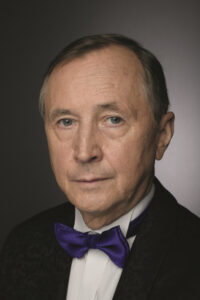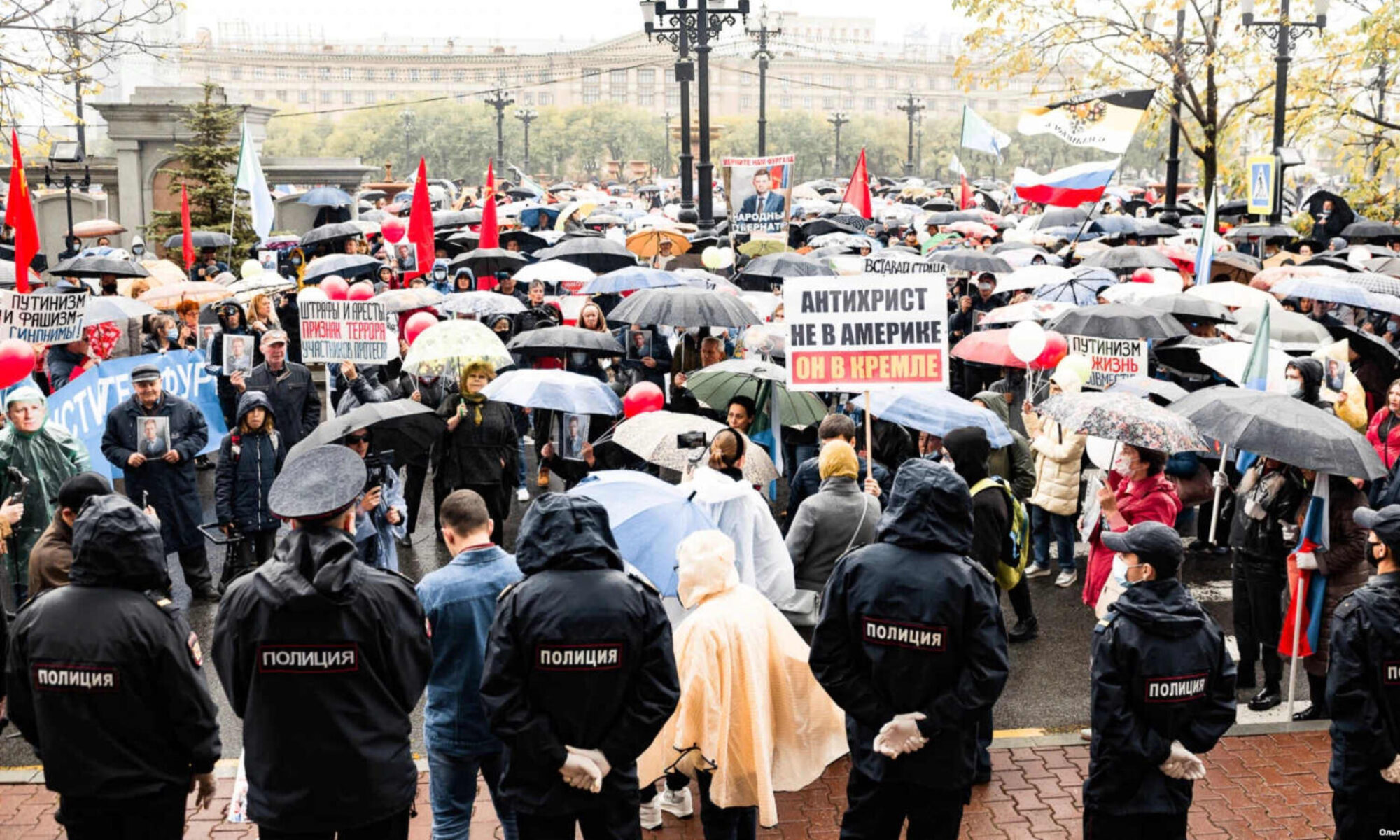On November 21, 2022; it was announced that a “Cultural Front of Russia” (Культурный фронт России) had been created. US-Sanctioned State Duma deputy and artist Nikolai Burlyaev was named chairman of the organization. Burlyaev claimed that the primary purpose of the group is to “mobilize and rally cultural and art workers” for the war effort in support of the presidential decree on “State Cultural Policy”.

According to TASS, the meeting was attended by 227 people, including various influential members of the Duma [1].
Of particular interest to me was that there was prominent participation from individuals who I have discussed on the blog in an “information warfare” and ideological context in the past. This includes ideologist Alexander Dugin, milblogger Semen Pegov, and “Putin’s confessor” Metropolitan Tikhon (Shevkunov) (who appeared by video message) [2].
Some excerpts of Nikolai Burlyaev’s statements make it clear that this organization fits into an officially-sanctioned ideological grouping pertinent to the denazification and desatanization objectives which Russia has been using in an attempt to unite its wartime society.
“Today, at the time of the mobilization of our soldiers for a decisive battle with world Nazism and Satanism, it is necessary to mobilize and rally cultural and art workers, therefore, it was decided to create in our country the all-Russian public non-party movement “Cultural Front of Russia” for the synergy of creative workers with the whole society, teachers , scientists, the army, the main religious denominations …
“The “Cultural Front of Russia”, which unites thousands of outstanding creators, is intended to become a competent expert base that helps government departments and the Ministry of Culture to implement the presidential decree “On State Cultural Policy”, controls the distribution of funds, promotes the cultural revival and enlightenment of cinema, theater, music, literature, strengthens intellectual and information plan of Russia“. [1]
Dugin, maintaining consistency with his recent advocacy for ‘sovereign ideology’ in Russia, seems to have described the formation of the organization as “the general headquarters on the fronts of the information war” which would help Russia break out of ‘enslavement’ to “anti-Russian” civilizational systems [3, 4].
Beyond the presence of figures I have associated with Russian ideological competition with the West, the recognition of the “Cultural Front of Russia” was very interesting to me for several reasons.
While the majority of the critical analysis on the creation of this group seems to focus on its parallels with the Chinese Cultural Revolution, and potential for repression within Russia [3]; the very name of a “Cultural Front” with an “information warfare” aspect was compelling for what may be perceived as an association with the “Popular Front” movement that preceded World War II.
In his book “The Cultural Front” (which has an excellent Chapter: “The Politics of Magic: Orson Welles’ Allegories of Antifascism“), historian Michael Denning explained:
“The cultural front is thus the terrain where the Popular Front social movement met the cultural apparatus during the age of the CIO [Congress of Industrial Organizations]. From that conflict and conjecture came the Popular Front “flavor” of American mass culture, what I will call the laboring of American culture“… (p. 50)
…
“the cultural front is thus less the spectacle of commitment, either the momentary flurries of committed agitprop art or the public stances of committed artists, than the often unstable alliance of cultural figures with distinct alignments: modernist, émigré, or plebian.
“The second metaphor that runs throughout the discussions of the politics of culture in the age of the CIO is that of the “front.” For its anti-Communist critics, the Popular Front was a façade, a Potemkin Village, a false front. In his 1941 attack on The Red Decade, Eugene Lyons called the front a “Trojan Horse Trick,” and Irving Howe was later to characterize it as a “brilliant masquerade.” For these critics, the front groups were “innocents clubs,” manipulated by the Communist Party.” … (p 62) [5]
The 1930’s left wing Popular Front movement was specifically notable to me for its shaping by Russian influencers who were also espionage agents.
For example, the figures of Otto Katz and Louis Dolivet who were critical in the establishment of various anti-Nazi organizations in Hollywood which were actually fronts for the Communists. (Katz and Dolivet were proteges of the notorious propagandist Willi Munzenberg who was responsible for the propaganda narrative surrounding the Reichstag fire that preceded Hitler’s rise to power in Germany.) It has been alleged that the very idea of “anti-fascism” itself was coined by Joseph Stalin in a propaganda context.
As quixotic as Russia’s fascist, anti-Nazi, and antichristian war to desatanize Ukraine may be, there is some consistency here.
This is the historical milieu which underpins my peer-reviewed paper arguing that Orson Welles’ promotion of Nostradamus conspiracy theories in the 1980’s matched a legacy of known active measures and information operations by Russia since the Popular Front era [6].
Because the “Popular Front” could be framed a 1930’s Russian influence export to some extent, it is interesting to wonder how this new “Cultural Front” might actually have an export value for information warfare as Dugin seems to suggest.
It seems it could synergize beyond simply supporting a new ‘Stalinist’ kind of repression in Russia.
Such an observation would not necessarily have to be an intentional increase in “QAnon” or fascist-antisemitic kinds of ideas being pumped into the West through the internet; as we might expect will increasingly happen with this denazification and desatanization rhetoric and the dedicated motivations of a state actor like Russia.
It could also be something like reflexive control by the export of “Pussy Riot”-type dissidents who are run out of Russia and then supported by Western sources simply because they claim to be anti-Putin.
This may not only be an analogy with modern figures like Pussy Riot; but also of historical figures like Trotsky, Munzenberg, Katz, and Dolivet too (even if all except Dolivet were eventually murdered by the Stalinists). (I would say the same goes doubly true for being cautious about hiring expatriate Russian IT workers these days.)
When I checked my references for Nikolai Burlyaev, I only found reference to him in Alexander Verkhovsky’s book “Political Orthodoxy”, in the context of the INN scandal in the Russian Orthodox Church [7].
This represented a significant cultural event in the 1990s where hardcore Russian nationalists – who at this time were a marginal group – developed a conspiracy theory that barcodes in Russian society represented the seal of the antichrist. This led to a lot of problems for the patriarchate who had to walk a fine line between appeasing the orthodox ultranationalists and supporting the introduction of the state identification system.
The INN case is interesting for the insight it provided by ‘profiling the culture’ of Russian nationalists who are obsessed with these apocalyptic ideas when theorizing Russian involvement in various internet conspiracy theories going back to the 1990s.
I had related the INN case earlier in theoretical arguments as to how Russian information warfare had populated the 1990s internet with numerological arguments that Bill Gates was the antichrist or that Windows 95 represented the Number of the Beast.
The case of the INN was also applicable to some of the apocalyptic narratives which seemed both fostered and combatted by the Russian Orthodox Church during coronavirus. (Again, the Gates case seemed interesting here when he resurged as a candidate for the identity of the dark lord in Russian propaganda during this time.)
Ultimately while the above examples of the INN case and its “cultural” applicability to Russian information warfare are theoretical, I think that it is again very interesting here to objectively note that through events such as Burlayev’s speech in announcing the goals of this organization, it complements Russia’s seemingly official lurch towards the national adoption of a fascistic right-wing ideology over time.
When we look at the discussion of the INN case as it relates to Burlyaev in the context of Verkhovsky’s book, we see that the matter relates to the broader contours of the Russian Orthodox Church’s influence into Ukraine and Greece and general antiglobalist sentiment [6].
I would argue we see some past evidence for the export value of orthodox nationalist conspiracy theories of this nature by such a ”general headquarters on the fronts of the information war”; as the INN case itself may have arguably represented, or global conspiracy theories about microchips in vaccines during coronavirus seem to have represented.
Whether or not this organization will have a significant influence in Russia and abroad remains to be seen. However, it seems important to highlight based on its potential synergy with previous models of Russian influence and information operations.
References
[1] Alexander Shcherbak, «В РФ учредили общественное движение “Культурный фронт России“» (“Public movement “Cultural Front of Russia” established in Russia“), November 21 2022, https://tass.ru/obschestvo/16386253
[2] Regional Russia, ««Культурный фронт России» — учреждено новое общественное движение» (““Cultural Front of Russia” – a new social movement was established”), Regional Russia, November 22 2022, https://regruss.ru/kulturnyj-front-rossii-uchrezhdeno-n/
[3] Vladimiras Laucius, «Россия наконец пробуждается» (“Russia is finally awakening“), Delfi, November 27 2022, https://www.delfi.lt/ru/opinions/comments/vladimiras-lauchyus-rossiya-nakonec-probuzhdaetsya.d?id=91865531%20/
[4] Tatyana Antonova, «Дугин резко заявил об отсутствии культуры в России» (“Dugin spoke sharply about the lack of culture in Russia“), Moskovsky Komsomolets, November 21 2022, https://www.mk.ru/culture/2022/11/21/dugin-rezko-zayavil-ob-otsutstvii-kultury-v-rossii.html
[5] Michael Denning, 1996, “The Cultural Front: The Laboring of American Culture in the Twentieth Century“, Verso Books
[6] Michael Hotchkiss, 2019, “Russian Information Warfare and 9/11 Conspiracism: When Fake News Meets False Prophecy?“, in Sarfraz, M. (ed) Developments in Information Security and Cybernetic Wars, IGI Global, pp. 236 – 266.
[7] Alexander Verkhovsky, 2003, “Political Orthodoxy: Russian Orthodox Nationalists and Fundamentalists 1995-2001″, Sova Center, Original Russian at: https://www.sova-center.ru/files/books/ort03-text.pdf ; English Auto-Translation at: https://n01r.com/reading-list/alexander-verkhovsky-political-orthodoxy-russian-orthodox-nationalists-and-fundamentalists-1995-2001-translation-with-appended-original/
